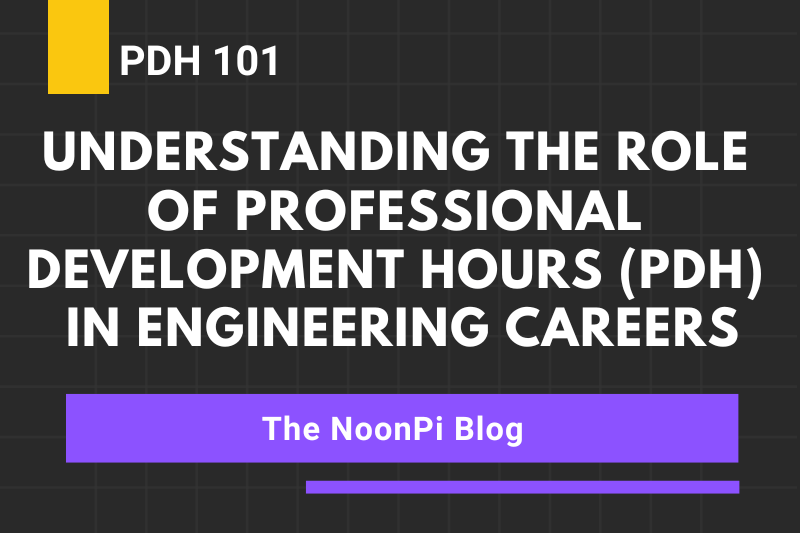Continuing education is a cornerstone of professional growth for engineers. As you plan your Professional Development Hours (PDH), understanding the topics that are approved for PDH credits and those that aren’t is crucial.c
Approved Topics for PDH Credit
Most licensing boards require the content of PDH activities to be relevant to the practice of engineering to count towards licensure renewal. Let’s explore some of the main categories of approved topics.
- Engineering Topics
This category is at the heart of most PDH activities. It includes courses covering specialized engineering subjects, emerging technologies, or regulatory updates in your specific engineering discipline. - Ethics for Professional Engineers
Ethical considerations play an integral role in engineering practice. Consequently, all the state boards approve PDH credits for courses addressing engineering ethics and professional responsibility. - Project Management
Engineers often find themselves in roles that require effective project management. Therefore, courses that develop these competencies, such as those covering project planning, resource allocation, risk assessment, or quality control, are typically approved for PDH credit. - Laws & Rules for Engineers
Knowledge of laws and regulations governing engineering practice is critical, and thus, courses focused on these topics are acceptable for PDH credit.
Non-Approved Topics for PDH Credit
While many topics can contribute to your personal or professional development, not all are approved for PDH credit. Some areas that generally don’t count towards PDH include:
- Personal Development
Although crucial for personal welfare, topics related to personal financial management are typically not accepted for PDH credit as they don’t directly relate to engineering practice. - Self-Improvement
Courses on general self-improvement or personal hobbies might contribute to your overall well-being, but they are usually not recognized for PDH unless they have a clear link to your professional work as an engineer.
The Gray Area
Some topics fall into a gray area. They are accepted for PDH credit in some states but are unapproved in others. Some areas that fall into the gray area include:
-
- Business Skills
Engineers in leadership or entrepreneurial roles need sound business acumen. PDH activities that enhance business-related skills, such as contract negotiation, finance & budgets, or strategic planning, are accepted by some engineering boards, but not others. - Leadership
Courses aimed at developing leadership skills are accepted for PDH credit, but not in others. These can cover various aspects of leadership, such as team building, decision-making, conflict resolution, or organizational behavior. - Computer Skills
Given the significant role of computer technology in modern engineering, many boards approve PDH credits for courses that upgrade an engineer’s computer skills when they are directly applicable to their work, such as learning a new CAD software. But courses that cover general computer skills or non-engineering software, such as learning a word processing program, may not be accepted in your state. - Engineering Firm Management
Courses that provide insight into the operational aspects of running an engineering firm, including business development, marketing strategies, and employee management, are specifically unapproved for PDH credit in some states. But in other states, these topics are not even addressed in the laws & rules for continuing education, so the acceptability is uncertain.
- Business Skills
In Conclusion
While this guide provides an overview of what typically counts towards PDH credit, remember that each licensing board has its own set of rules and what’s accepted varies from one state to another. Always check the specific guidelines of your state licensing board to ensure that your chosen PDH activities will be accepted.
The goal of PDH is not only to satisfy a licensing requirement but also to genuinely enhance your skills and knowledge as an engineer. Choose PDH activities that are not only approved but also align with your career goals and areas of interest. By doing so, you’ll ensure that your investment in continuing education pays off in real professional growth.









Leave A Comment